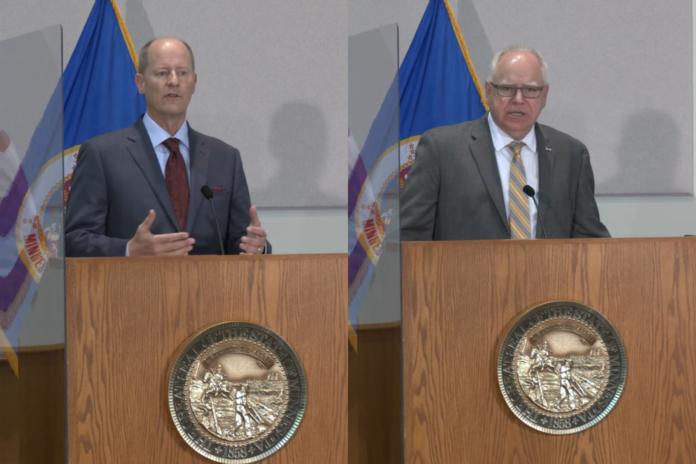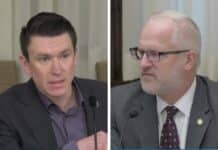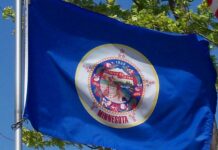
(The Center Square) — More than a week after their initial deadline, Minnesota legislative leaders announced Monday a bipartisan budget agreement on a $52 billion budget, although many policy issues remain unresolved.
The agreement includes using the COVID-19 flexible fund for:
- $75 million for summer learning
- $7 million for state government and operating deficiency and remote work
- $12 million for continued operations of the Minnesota Zoo
The agreement stipulates:
- Housing target includes debt service of $100 million for Housing Infrastructure bonds. If Congress passes a federal infrastructure bill in 2021 that provides funding for the same purposes, the state won’t sell those bonds.
- $70 million for broadband funding
- Walz, House Speaker Melissa Hortman, DFL-Brooklyn Park, and Senate Majority Leader Paul Gazelka, R-East Gull Lake, agreed to increase the budget reserve level from $1.59 billion to $2.37 billion.
- Any policy and finance provisions included in a final omnibus bill must be agreed to by the above three leaders.
- All three leaders agree the “appropriate” commissioners and committee chairs shall work cooperatively together to reach an agreement within the target provided.
- All working group members and commissioners must complete finance spreadsheets by 5 p.m. Friday, May 28.
- The global budget targets reached don’t ensure approval of any omnibus bills.
“I’m proud that the agreement we reached makes historic investments in education while providing tax cuts for Minnesotans across the state,” Gov. Tim Walz said in a statement. “This demonstrates that, despite a divided Legislature, Minnesotans are united by our shared values: We look out for our neighbors, we want everyone to have an opportunity to succeed, and we all do better when we all do better.”
Details of each budget area are still being finalized.
The deal includes $440 million in state tax breaks for businesses that received federal Paycheck Protection Program loans and exemption of taxes for the first $10,200 of 2020 unemployment insurance.
“I think of this as a numbers-only agreement,” Hortman said.
What doesn’t fall into that category is likely Walz’s emergency powers, California car regulations, police reform, the eviction moratorium, price gouging rules, and more.
About $2.6 billion of federal stimulus money initially divided the parties. If the Legislature adjourned, Walz could have spent that amount, if not for agreements reached at 11:58 p.m. Sunday.
The compromise holds that Walz will allocate $500 million, but the Legislature, working with the governor, controls the rest of the federal money, Gazelka said. Other problems remain unsolved, including Walz’s COVID-19 emergency powers which Gazelka called “a thorny issue.”
The Legislature must adjourn by 11:59 p.m. Monday whether or not a budget is passed.
The deal calls for a policy agreement by June 4 before a June 14 special session. If there’s no deal passed by June 30, the state government shuts down.
“The work isn’t done. It’s just begun,” Gazelka said. He called the deal a “win” since it won’t raise taxes.
Hortman praised President Joe Biden’s American Rescue Plan for allocating billions to Minnesota but pushed for more policy work enacted during the special session, such as police reform.
“We’re in a position to give tax cuts, to have historic funding in E-12, really an enormous investment in education, because of the American Rescue Plan,” Hortman said.










